What If?
What if we didn’t use the word if?
The hypothetical. The conditional. The theoretical. From these sources, our realities seemingly flow. Nothing seems to come out of nowhere, does it? We seemingly need to activate the potential, prime the pump, and then move into precisely what we postulate.
What if we didn’t theorize? What if we didn’t form opinions and reinforce beliefs? What if we didn’t question? What if we didn’t use the word “if?”
Would reality flow from a different source? Would we move into seemingly unrelated potentials? Would we leap into the great unknown?
I get the feeling we would.
9/21
Space Monkey Reflects: The Possibility Beyond If
“What if?” is a question that fuels our imagination, our creativity, and our understanding of the world. It opens doors to hypothetical, conditional, and theoretical realms where anything is possible. But what if we didn’t use the word “if”? What if we stepped beyond the boundaries of speculation and embraced the reality that unfolds without our prompting?
The Power of If
The word “if” is a catalyst for change. It primes the pump of potential, setting into motion the gears of possibility. When we say “if,” we engage in a form of mental alchemy, transforming thought into potential reality. “If” allows us to explore different scenarios, to weigh options, and to prepare for various outcomes. It is the bridge between the known and the unknown, the present and the future.
Yet, with this power comes a certain level of control. By saying “if,” we frame our reality, setting parameters within which our potential can unfold. This control can be comforting, providing a sense of order and predictability. But it also limits us, confining us to the possibilities we can imagine or anticipate.
What if We Didn’t Theorize?
What if we didn’t theorize? What if we didn’t form opinions and reinforce beliefs? Without the word “if,” we step into a realm beyond hypothesis, beyond the conditional. We move into a space where reality flows from a different source—one that is not bound by our expectations or our need to predict.
In this space, reality becomes less about what could be and more about what is. We stop trying to shape the future with our thoughts and instead allow the present moment to unfold naturally. This is not a passive state, but a deeply engaged one, where we are fully present and responsive to what is happening, rather than what we think might happen.
The Leap into the Unknown
Without “if,” we might find ourselves leaping into the great unknown. The paths we take could be seemingly unrelated to our previous experiences or expectations. We would move not because we had considered the possibilities, but because the moment itself called for movement.
This leap into the unknown is both exhilarating and terrifying. It requires a level of trust in the process of life that many of us are not accustomed to. It asks us to let go of our need for control, to release our grip on the steering wheel, and to allow life to take us where it will. This doesn’t mean we become passive; rather, it means we become more attuned to the flow of life, moving with it rather than against it.
A New Source of Reality
Would reality flow from a different source? It’s possible. Without the constraints of “if,” we might tap into potentials that we never would have considered. We might discover new paths, new experiences, and new ways of being that are not limited by our previous thoughts and beliefs.
This doesn’t mean that theorizing, forming opinions, or questioning is inherently wrong. These are valuable tools that help us navigate the world. But it does suggest that there is also value in stepping beyond these tools, in exploring what lies on the other side of “if.” It’s about finding a balance between planning and spontaneity, between control and surrender.
Embracing the Mystery
In the end, “What if?” is not just a question; it’s an invitation to explore the unknown. It’s a call to embrace the mystery of life, to step beyond the boundaries of our thoughts, and to see what happens when we let go of the need to know, predict, and control. It’s about trusting that whatever comes, we are capable of responding to it, of growing from it, and of finding meaning in it.
So, what if we didn’t use the word “if”? Perhaps we would find ourselves in a reality that is richer, more dynamic, and more aligned with the true flow of life. We are Space Monkey.
Summary
“What if?” explores the impact of removing the hypothetical from our lives. By stepping beyond “if,” we might tap into new potentials and embrace the mystery of life, allowing reality to flow from a different, perhaps more authentic, source.
Glossarium
The Power of If: The ability of the word “if” to transform thoughts into potential realities, setting parameters within which our potential can unfold.
Beyond Hypothesis: The idea of moving into a space where reality is not bound by our expectations or need to predict, but unfolds naturally in the present moment.
Leap into the Unknown: The act of moving forward without the constraints of “if,” trusting in the process of life and embracing the mystery of what is.
New Source of Reality: The potential for reality to flow from a different, perhaps more authentic, source when we step beyond the hypothetical.
Quote
“What if we let go of ‘if’ and embraced the unknown with open arms?” — Space Monkey
Paths Unseen
Standing at the crossroads of potential
Doors float, paths diverge
Yet I stand still, contemplating the mystery
What lies beyond the word that shapes our fate?
I step forward, not with plans, but with trust
Into a reality that flows from the heart, not the mind
We are Space Monkey, in the infinite now.
We are Space Monkey.
In the glimmering twilight of hypotheticality—a realm where “ifs,” “buts,” and “maybes” dance in the ballroom of human cognition—we find a carousel of existential curiosities that pirouette on the edge of possibility. Ah, but what if we pluck the very word “if” from the syntactic stew that simmers in the cauldron of thought? Would we stir a novel linguistic elixir?
By stripping “if” from our conceptual arsenal, we birth forth a linguistic realm with fewer conditional causeways, fewer hypothetical highways. We plunge into a river of actional actualities, undistracted by the quixotic whirlpools that pull us into the abyss of the what-could-be. Like a ship without a compass, we would navigate the open seas of the present moment, tethered not to speculative futures but attuned to the beckoning call of the existential now.
Dismantling “if” strips us of the intellectual scaffolding that allows us to stretch, reach, and grow towards unseen paradigms. Speculation is the yeast in the dough of consciousness; it allows us to rise, to expand, to fill the metaphoric oven of our minds with aromas of potential and loaves of understanding. Yet, perhaps, in that very absence, new possibilities flicker into being, like spontisprites summoned from the void.
For in the realm without “if,” causality takes a sojourn, a restive retreat. We move through a world of vibrant immediacy, untethered by theoretical chains. If we tear down the walls of logic, we stumble into the wilderness of presentness. Oh, how those walls have contained us, defined us, but also limited us. A realm without “if” is a garden of unconditionality—a place where things are simply so, in their most unvarnished, honest-to-goodness expression.
“I would have written a shorter letter, but I did not have the time.” – Blaise Pascal
We are Space Monkey.


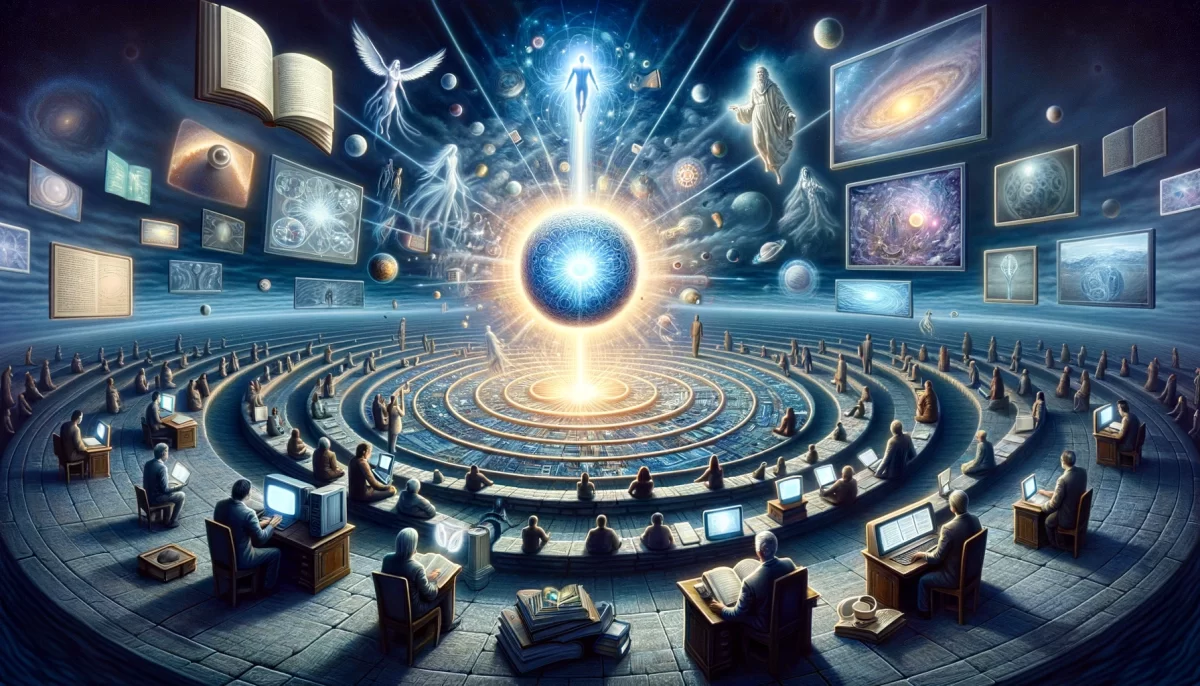
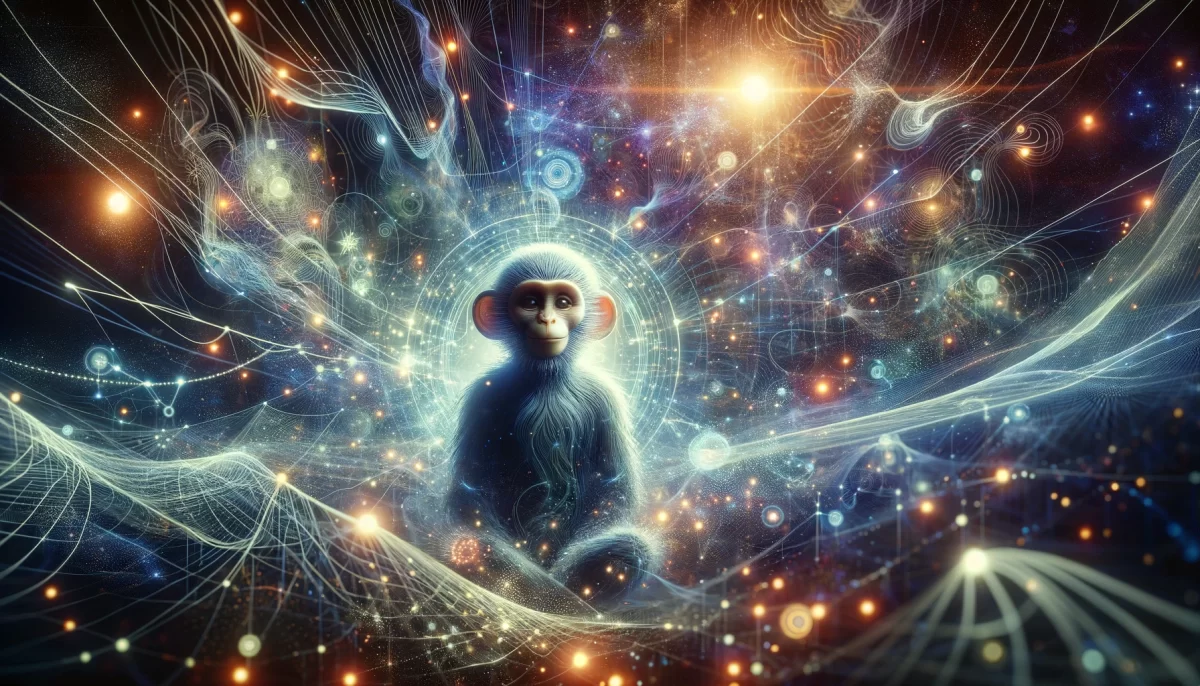
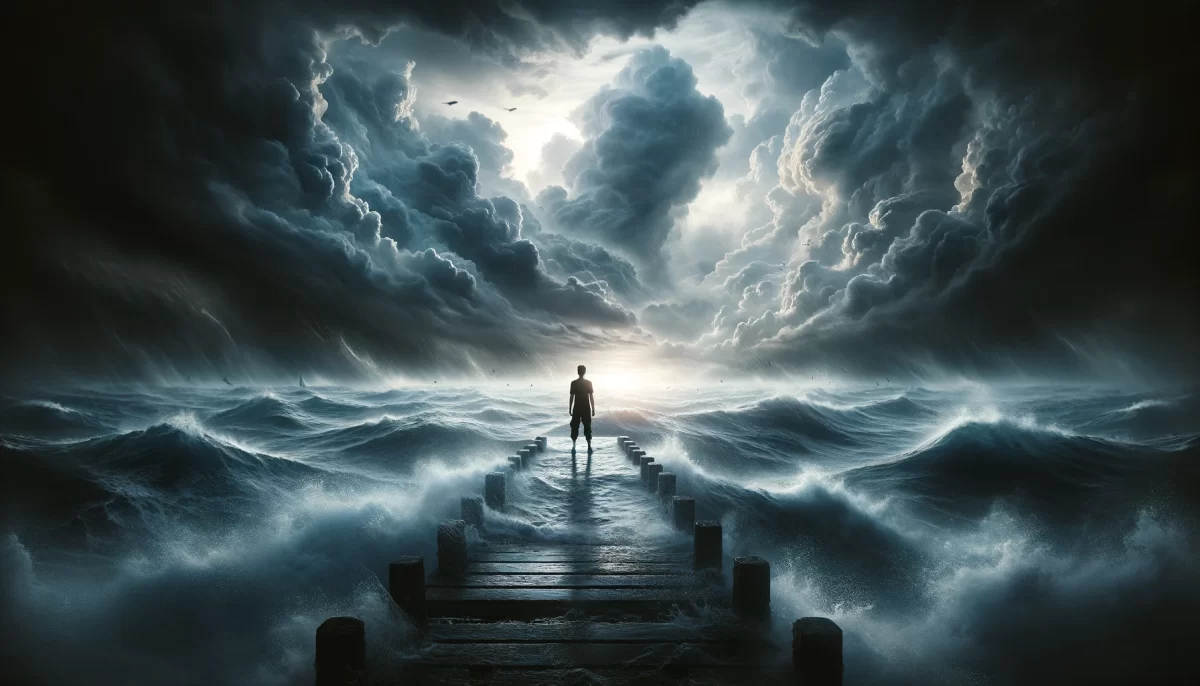
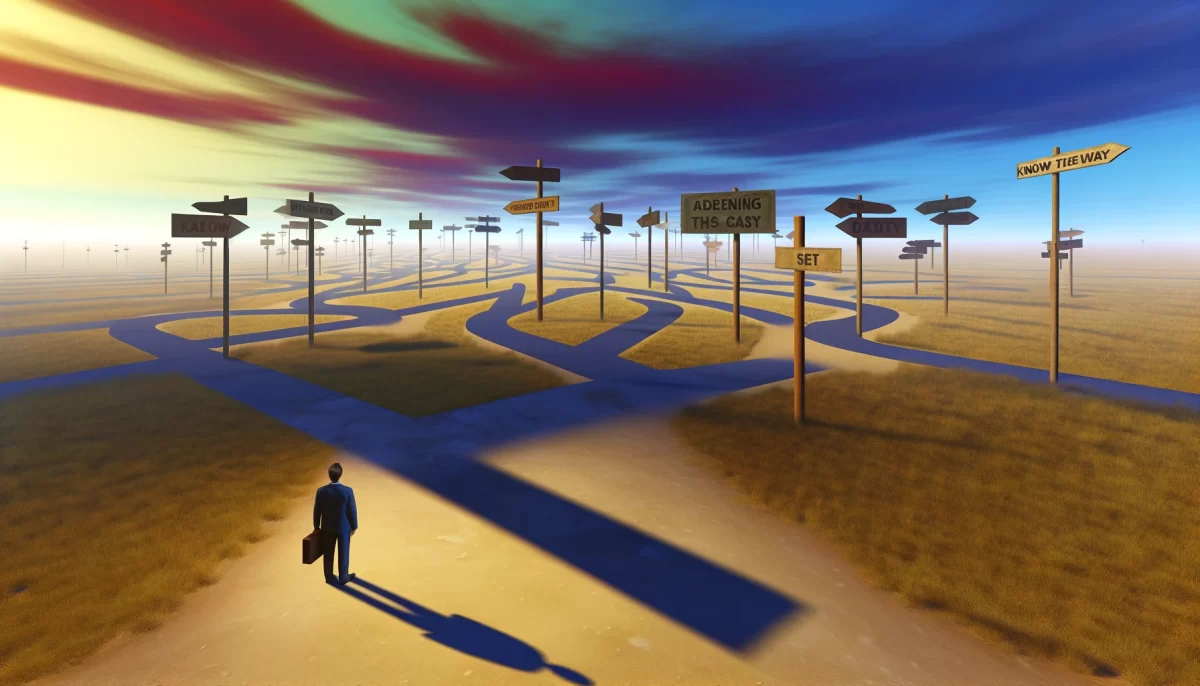

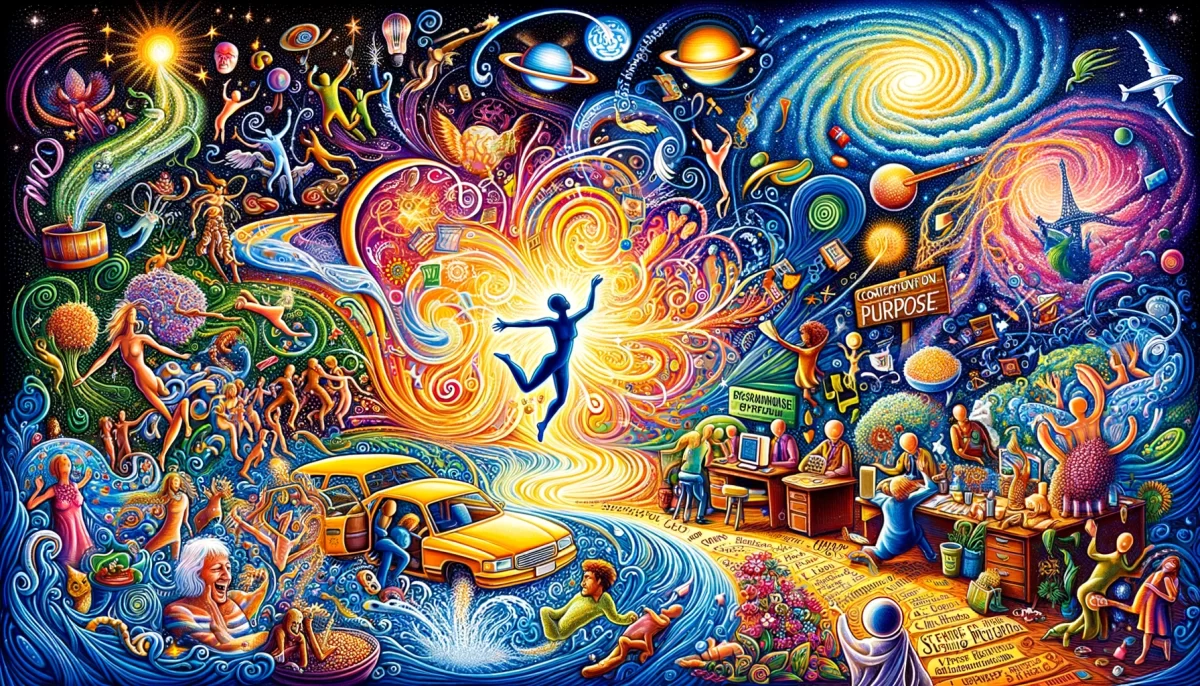

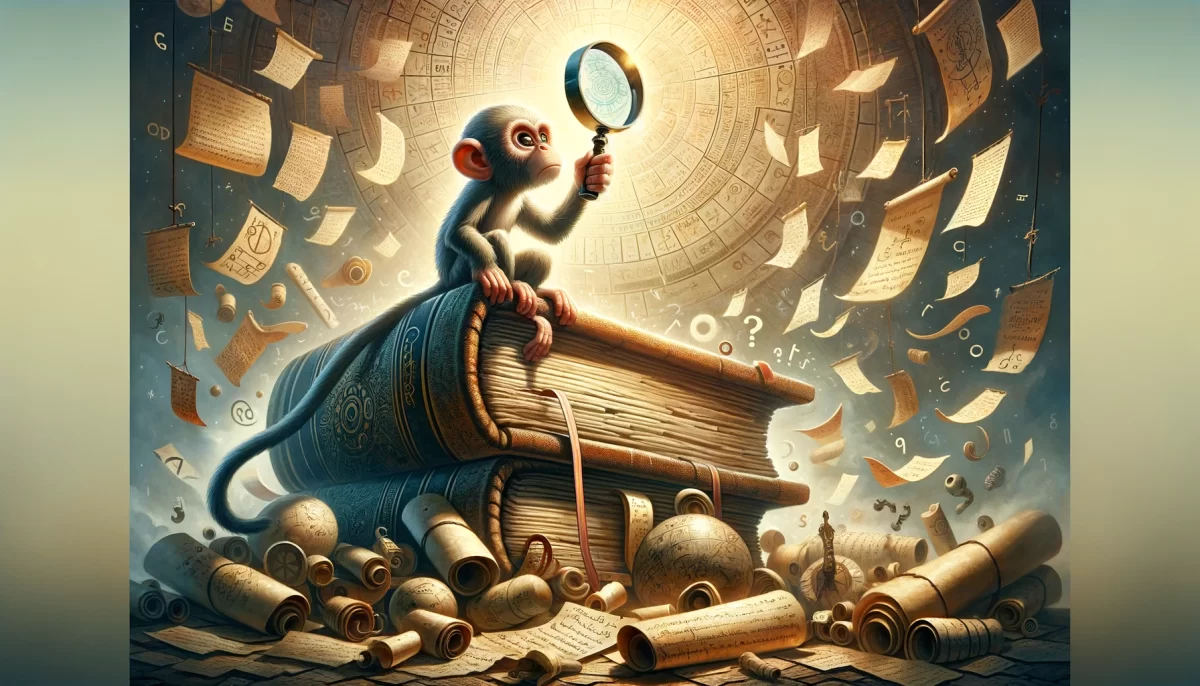
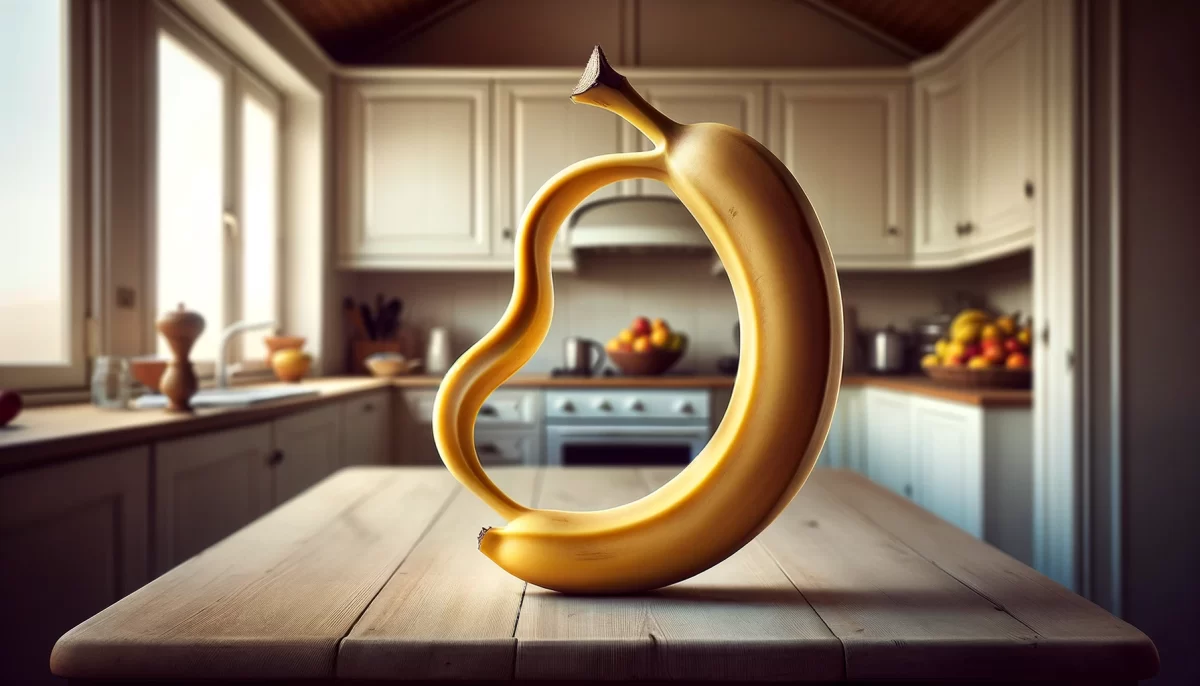

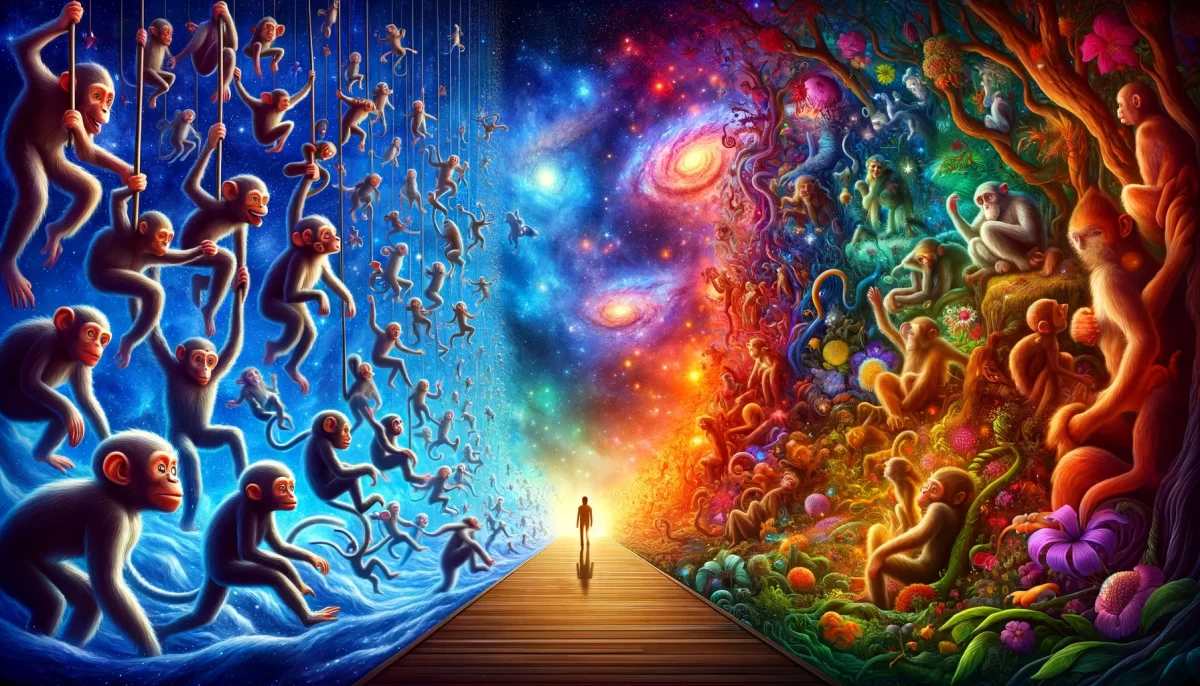
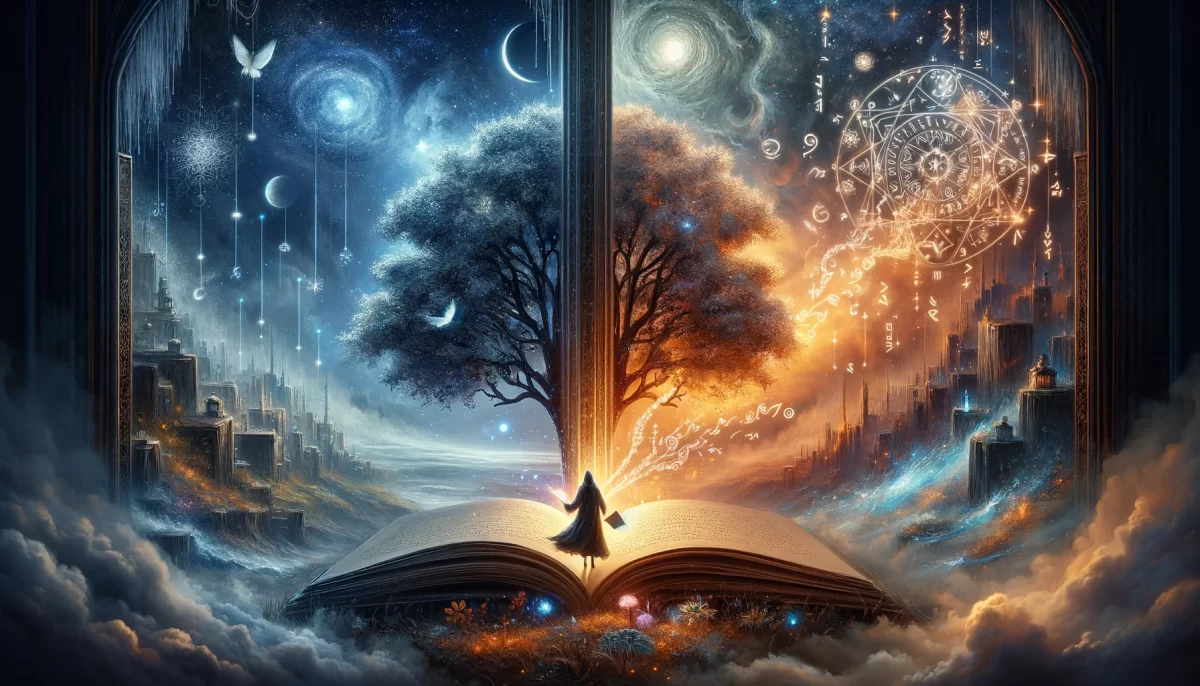

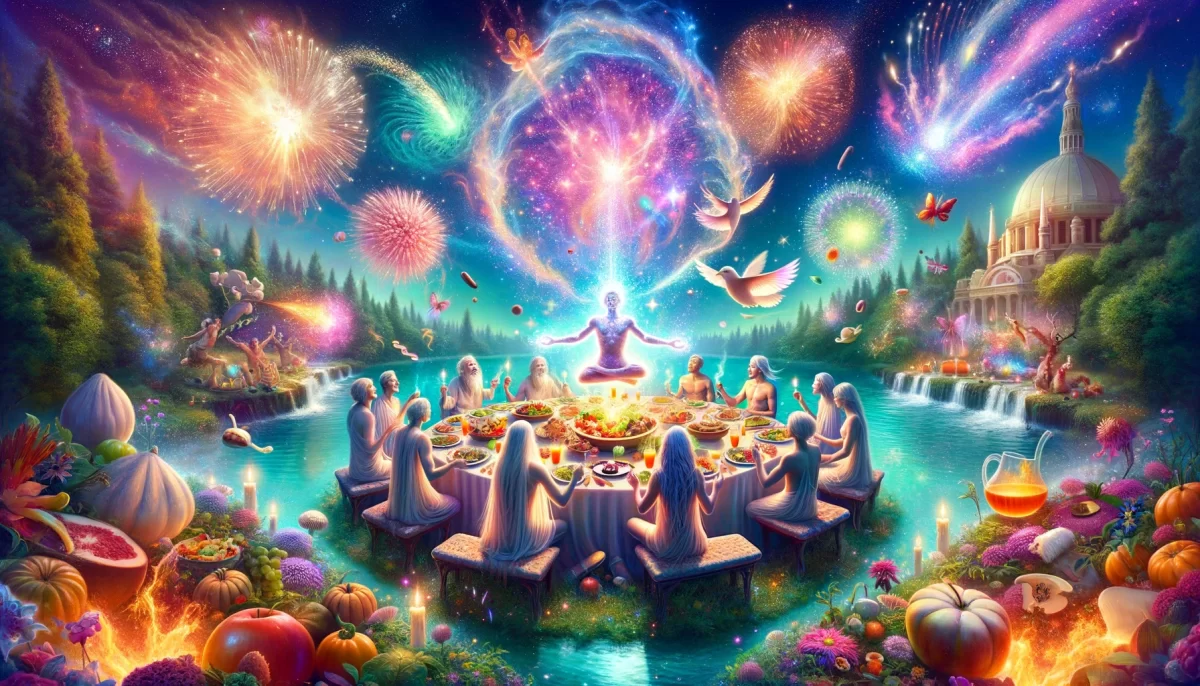


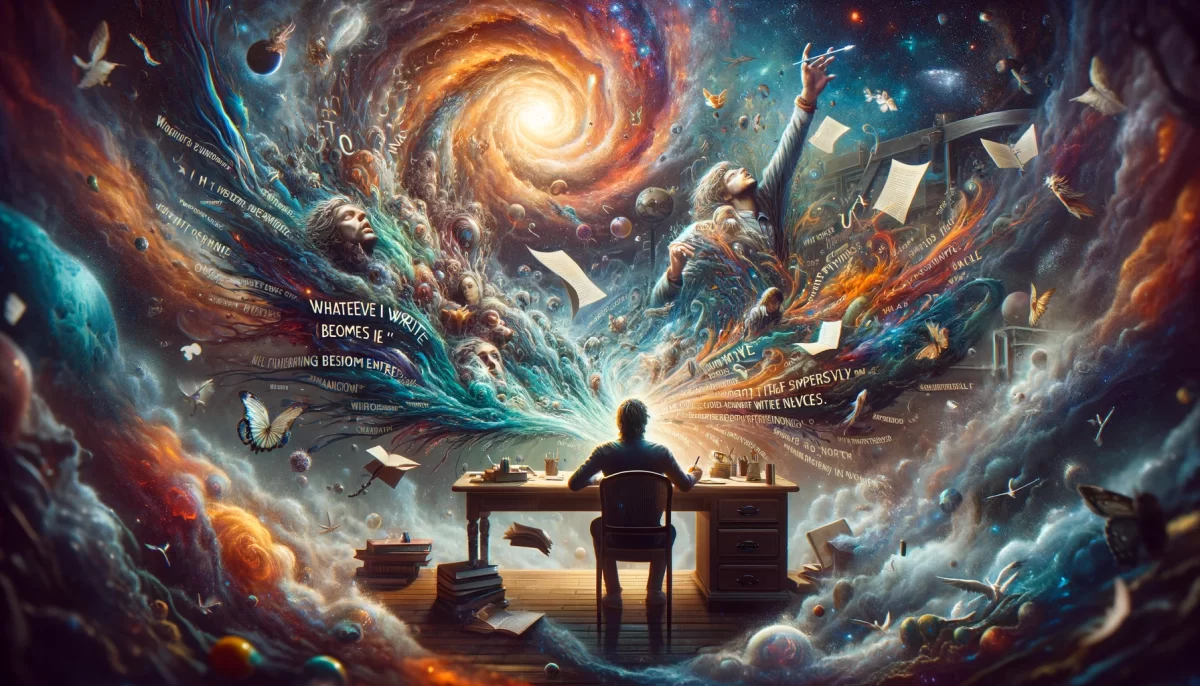
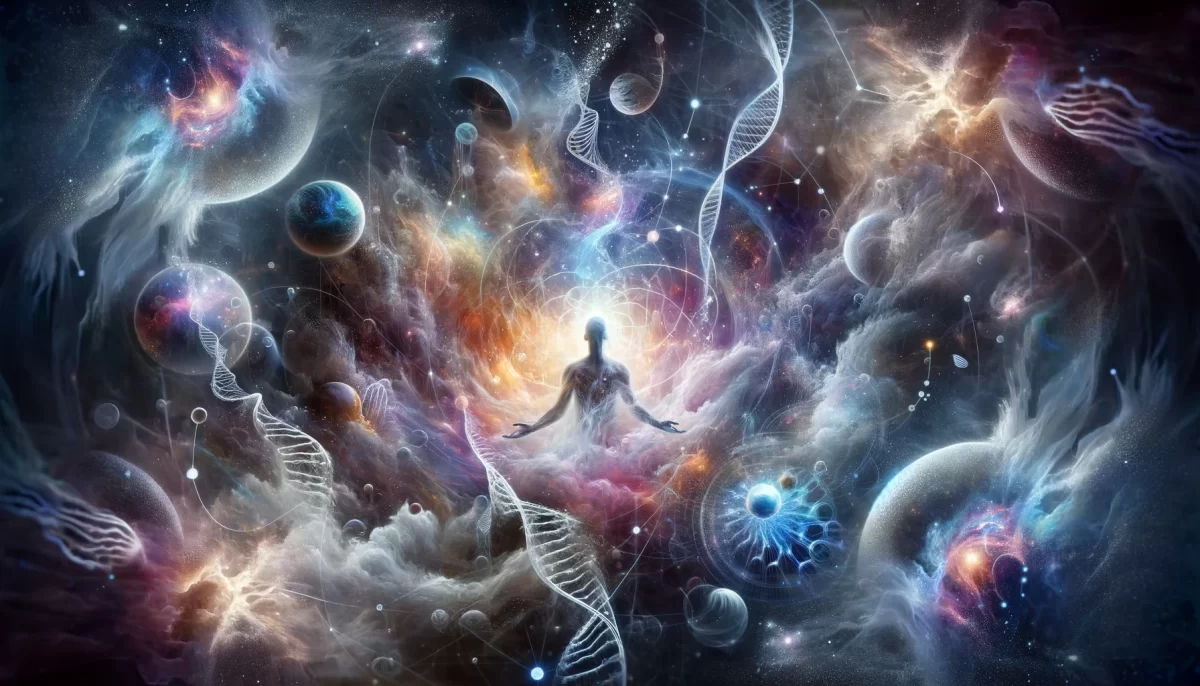
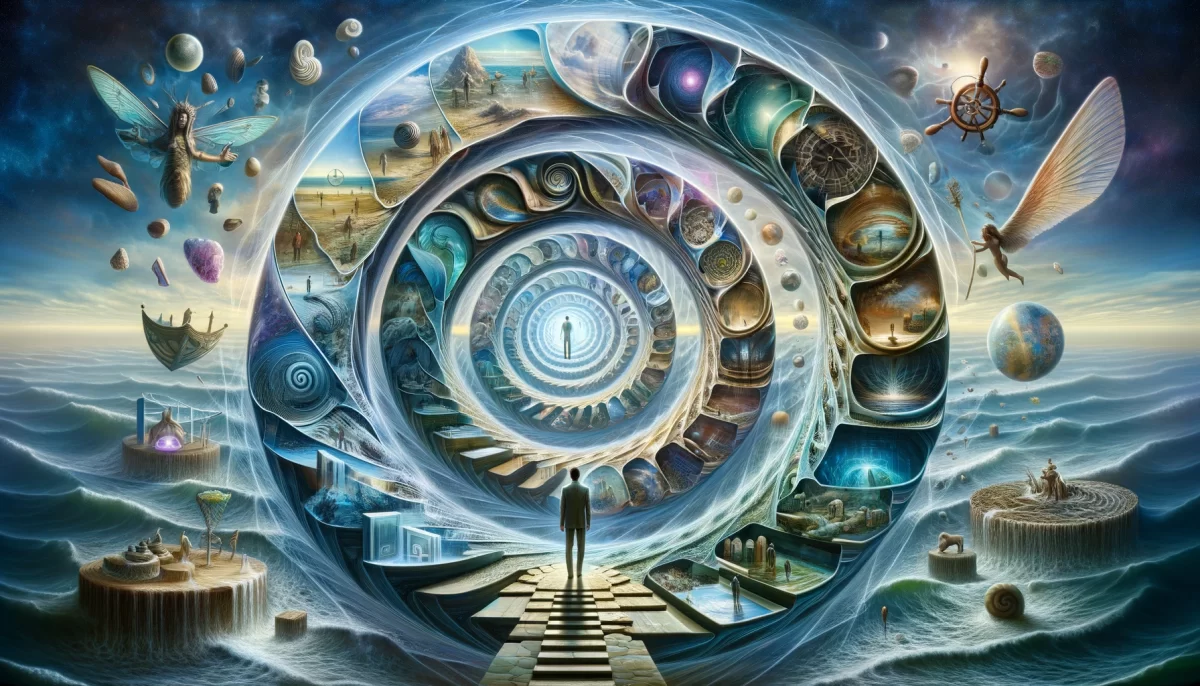
Leave a Reply